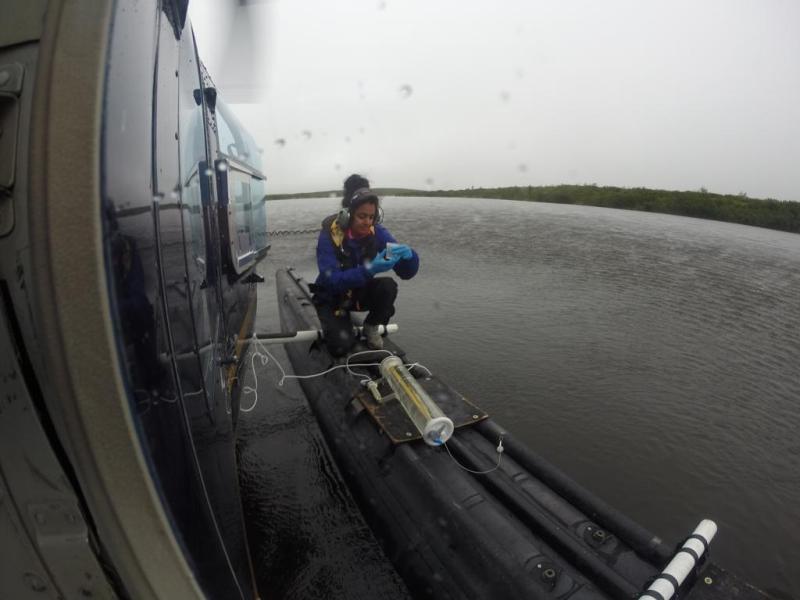Jofina Victor is an Aquatic Scientist with the consulting firm Ecometrix. She graduated with a B.Sc in Environmental Science in 2017.
Where do you work and what do you do?
My title is Aquatic Scientist with the consulting firm Ecometrix. It’s a relatively small consulting firm, with about 50 people. Ecometrix works with clients to do environmental monitoring. It’s a bridge between policy and developers – helping them comply with their environmental obligations. My job is a good mix of field work, lab work, and data work. For example, I’ve just returned from a field project in Nova Scotia where we were taking measurements on fish, benthics, vegetation, and doing water sampling.
Tell us your work journey after the degree: what went well? What was challenging?
I debated going into a Master’s program, but instead I got my Fish & Wildlife Diploma at Fleming College. I wanted to do more field work and in that program I learned fish identification, how to use equipment, how to drive a boat. With a degree, it’s a one year program. Without, it’s a two year program.
So how does the knowledge you got from your degree work with the knowledge from your diploma?
I feel it’s an advantage on some contracts, because I have the abilities in the field and also the theoretical knowledge about why, what to do with the data, and how to write the report.
How did you use what you learned? When did you feel like “I wish that they had taught me about this in university!”
The academic approach gives me the ability to do research and writing, and even to do things like do a literature search, which is often important at work. I did the diploma afterwards because I felt I didn’t come out of university with enough field-work and hands-on learning.
Thinking back to when you were in high school, what made you want to get into this? How does what you are doing match, and differ, from what you thought?
In grades 7 and 8 I was in the school environmental club. In high school, I knew I loved biology and geography classes, but I had no idea that they could actually work together. In university I realized that that is kind of what environmental science is – a combination of biology and geography.
In high school I thought the environment was recycling, limiting garbage. Now I know the environment includes ecosystems, zooplankton, fish – I didn’t even know what zooplankton was back then!
Any other advice for people thinking of an undergrad environmental degree?
Take advantage of extracurricular opportunities like volunteering. I volunteered for the Toronto Region Conservation Authority and Credit Valley Conservation. I got a lot of experience that way.
Take advantage of your peers, your professors, and put yourself out there. You might be surprised at the opportunities that might come up if you ask. I worked with professor Jennifer Korosi on my thesis and as a summer research assistant, traveled to the Arctic after my undergraduate degree, which was an amazing experience that came from talking to my professors.


